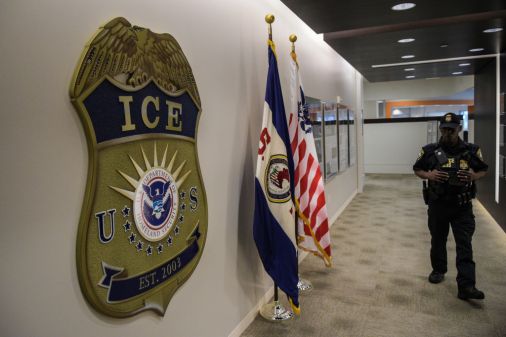Tech issues are part of the problem — and solution — for FOIA backlog, GAO finds

The ever-increasing backlog of Freedom of Information Act requests for federal agencies is due in part to technological issues facing the workers charged with fulfilling them, a new Government Accountability Office report found.
The congressional watchdog, tasked by a bicameral, bipartisan group of lawmakers to investigate FOIA response delays, found that the backlog jumped from 14% in 2013 to 22% in 2022, with the growing complexity of requests, staffing shortages and increasing threats of litigation also cited as impediments to the work.
A host of tech-related problems, including with FOIA request management systems and other processing tools, came up regularly during the January 2023 to March 2024 performance audit by the GAO, which conducted four virtual focus groups with senior officials representing 23 Chief Financial Officers Act agencies.
“As technology has developed, we are able to store so many more records than in the past,” a senior FOIA agency official told the GAO. “When we search large volumes of data, we receive tons of records back that are potentially relevant. Unfortunately, we don’t have the budget to invest in sophisticated software that would help us to review the volume of records that we receive. So at the end of the day, it’s one person that’s having to review tens of thousands of records for potential responsiveness, which is a huge issue. It takes a lot of time.”
Another focus group participant called out requests related to email records or internal communications, such as chat and text, as their agency’s “most complex and time-intensive responses.” The large volume of records combined with coordination challenges with other agencies presents a legitimate problem, the official said.
When pressed by the GAO on how agencies could overcome technical challenges and pare down backlogs, some officials pointed to governmentwide adoption of technology upgrades, ensuring that FOIA offices use identical systems to streamline document review and general coordination. Standardization in tech upgrades will become increasingly important as agencies deal with a proliferation of agency records in electronic formats, officials added.
While standardized tech upgrades to support FOIA requests haven’t materialized yet, agency officials who have leveraged new technologies have seen a marked difference in their efficiencies.
“We now have the ability in our FOIA office to search our agency’s email system,” one focus group participant said. “Before we were using our information technology staff to provide that service, where we would request that they run searches. They would use key terms, then come back to us, and we would have to go back and forth with different search terms, until we got it right. The ability for us to do the search has enabled us to finish these in a more timely and efficient way, which we couldn’t do previously.”
Another official said their agency uses technology to remove “duplicative entries in extremely large volumes of responsive documents,” while another spoke of going from five different systems to process requests across multiple bureaus and offices to just one, “and that’s streamlined and automated a lot of our processes,” they said.
The FOIA office within Customs and Border Protection and the agency’s IT leaders were cited specifically by the GAO for their use of robotic process automation, a new technology that allowed staff to more “quickly search for records with specific criteria, and complete simple, routine FOIA processing tasks.” Per the Department of Homeland Security, CBP closed more than 12,400 simple requests thanks to the RPA tool, saving FOIA staffers over 1,500 hours of work.
The GAO offered four recommendations to the Department of Justice, whose Office of Information Policy, along with the Office of Government Information Services, provides support and resources to agency FOIA offices. Those recommendations ask the Attorney General to direct OIP to issue guidance to agencies on effective backlog reduction plans, advise agencies to identify staff- and skill-related support efforts, develop a process to examine data reporting, and update training materials and related agency reporting standards.
The OIP has previously recommended that agencies “use enhanced technology to process requests,” per the GAO, pushing FOIA staff to partner with agency IT leaders to assess the efficacy and costliness of new tools, as well as acquiring “proper FOIA case management systems to automate the request intake process.”
On Capitol Hill, lawmakers applauded the release of the GAO’s report, which comes in the aftermath of the 2015 bipartisan FOIA Oversight and Implementation Act and was timed for release during Sunshine Week.
“An increasing backlog of FOIA requests compromises the already dwindling trust the American people have in their government,” House Oversight and Accountability ranking member Jamie Raskin, D-Md., said in a statement. The GAO’s report “not only outlines the key challenges that agencies face in their efforts to process FOIA requests in a timely manner, but it also highlights a pathway to transparency and regaining public trust in our institutions. Congress must ensure agencies have the resources needed to live up to FOIA’s promise.”
Sen. John Cornyn, R-Texas, added that FOIA serves as “a cornerstone” for the country’s “belief in open and transparent government.” The GAO report “should serve as a starting point to reduce the backlog of FOIA requests so Americans can continue to hold those who represent them accountable.”






